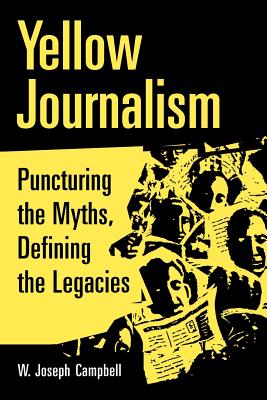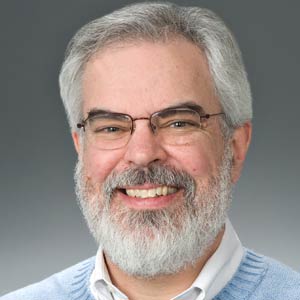

 Praeger
Praeger
Yellow Journalism: Puncturing the Myths, Defining the Legacies


Key Metrics
- W Joseph Campbell
- Praeger
- Paperback
- 9780275981136
- 9.18 X 6.18 X 0.69 inches
- 0.84 pounds
- Language Arts & Disciplines > Journalism
- English
 Secure Transaction
Secure TransactionBook Description
This offers a detailed and long-awaited reassessment of one of the most maligned periods in American journalism--the era of the yellow press. The study challenges and dismantles several prominent myths about the genre, finding that the yellow press did not foment--could not have fomented--the Spanish-American War in 1898, contrary to the arguments of many media historians. The study presents extensive evidence showing that the famous exchange of telegrams between the artist Frederic Remington and newspaper publisher William Randolph Hearst--in which Hearst is said to have vowed to furnish the war with Spain--almost certainly never took place. The study also presents the results of a systematic content analysis of seven leading U. S. newspapers at 10 year intervals throughout the 20th century and finds that some distinguishing features of the yellow press live on in American journalism.
The yellow press period in American journalism history has produced many powerful and enduring myths-almost none of them true. This study explores these legends, presenting extensive evidence that:
- The yellow press did not foment-could not have fomented-the Spanish-American War in 1898, contrary of the arguments of many media historians
- The famous exchange of telegrams between the artist Frederic Remington and newspaper publisher William Randolph Hearst-in which Hearst is said to have vowed to furnish the war with Spain-almost certainly never took place
- The readership of the yellow press was not confined to immigrants and people having an uncertain command of English, as many media historians maintain
The study also presents the results of a detailed content analysis of seven leading U.S. newspapers at 10-year intervals, from 1899 to 1999. The content analysis--which included the Denver Post, Los Angeles Times, New York Times, Raleigh News and Observer, St. Louis Post-Dispatch, San Francisco Examine and Washington Post--reveal that some elements characteristic of yellow journalism have been generally adopted by leading U. S. newspapers. This critical assessment encourages a more precise understanding of the history of yellow journalism, appealing to scholars of American journalism, journalism history, and practicing journalists.
Author Bio
Dr. W. Joseph Campbell is a tenured full professor in the School of Communication's Communication Studies program. He joined the AU faculty in 1997, after some 20 years as a professional journalist. Assignments in his award-winning journalism career took him across North America to Europe, West Africa, and parts of Asia.
Campbell is the author of seven books, including most recently Lost in a Gallup: Polling Failure in U.S. Presidential Elections. The book addresses prominent cases in which opinion polls misfired from 1936 to 2016. Campbell's other books include 1995: The Year the Future Began, which describes watershed moments of a decisive year in American history. Critics have described 1995 as "remarkable" and "compulsively readable." Campbell also has published two editions of the media-myth busting book, Getting It Wrong (2010, 2017).
The book won the national Society of Professional Journalists' Sigma Delta Chi award for research about journalism. Campbell has taught 19 different courses at AU, including "Myths of the Media," "Decisive Moments in Communication," "The American 1990s," and "Foreign Policy and the Press." He is a past winner of the "Faculty Member of the Year" award, given annually by AU's student government. He also has received the "Teaching with Research" award, given by the University's Center for Teaching Research and Learning. Campbell is a past recipient of the University's faculty award for service to the AU community and of the Morton Bender Prize, which recognizes scholarly achievement by an associate professor.
Campbell was promoted to full professor in 2009. For 16 years, Campbell kept his faculty office in McDowell Hall, an undergraduate residence hall on the North Side of the AU campus, as part of a collaborative program with the University's Office of Campus Life. In that position, Campbell sought to promote informal contacts among students and faculty in a residence hall setting, and to emphasize that academic life at AU extends beyond the classroom. He also taught seminar-style classes in McDowell.
Source: American University, Washington DC
Videos






Community reviews
Write a ReviewNo Community reviews